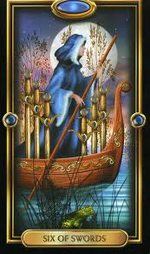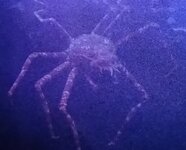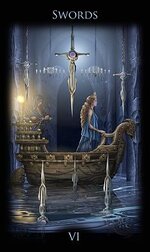Exposition is not Art.
Exposition is not Heart.
Just the same as a page needs empty space......
"A good storyteller knows that a fishing net is not made of rope. A fishing net is made of holes. Without the holes, the net would not function. And a story does not exist without gaps in knowledge. Stories are made from what is withheld, not what is given. "
David Baboulene
Scriptwriter (Hollywood/London)
Image: The Gilded Tarot, by kind permission of Ciro Marchetti

Exposition is not Heart.
Just the same as a page needs empty space......
"A good storyteller knows that a fishing net is not made of rope. A fishing net is made of holes. Without the holes, the net would not function. And a story does not exist without gaps in knowledge. Stories are made from what is withheld, not what is given. "
David Baboulene
Scriptwriter (Hollywood/London)
Image: The Gilded Tarot, by kind permission of Ciro Marchetti



